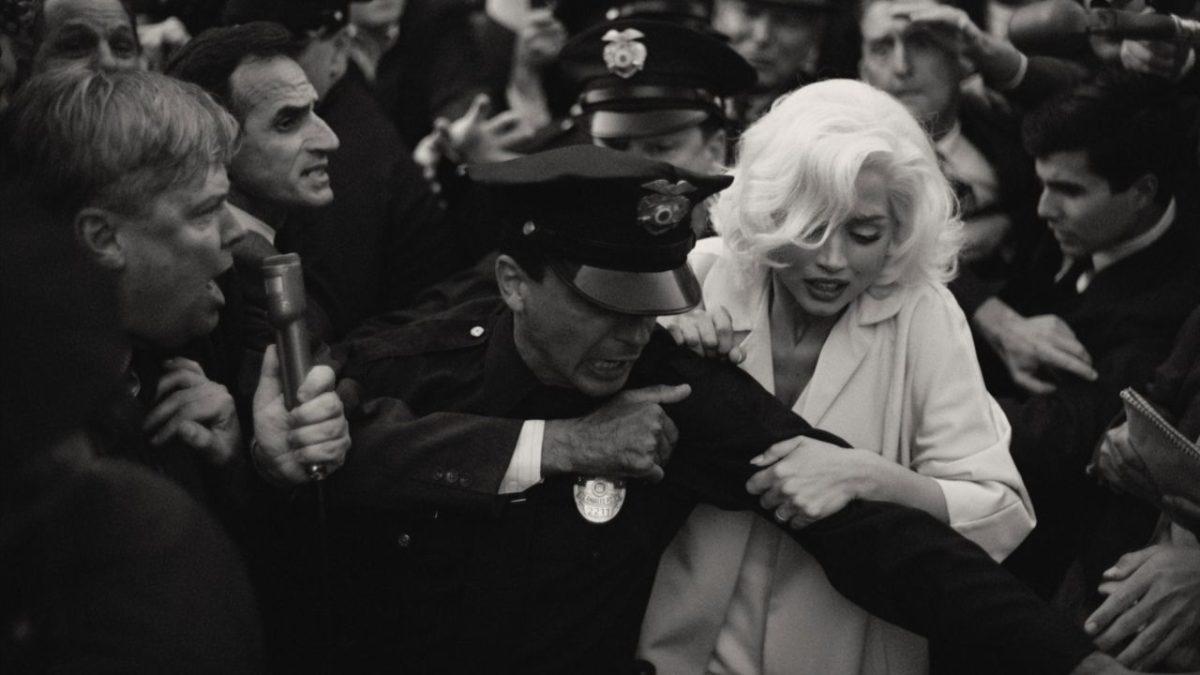Blonde is bad. There are no two ways about it. The cinematography is pretentious and disorienting. The sound mixing is unacceptable for a film campaigning so hard for the Oscars you would think it is the next Citizen Kane. The script seems like it was written by a sophomore at Tisch who thinks they are the next Joan Didion. And the subject, Marilyn Monroe, is viewed through a lens so unempathetic and misogynistic that the film seems less like it is about one of the most iconic film stars of all time and more like the origin story of a woman who shows up in a few episodes of Two and A Half Men.
According to writer and director Andrew Dominik, Blonde is to be viewed as a fictional story of someone careening towards suicide. But somewhere between the threesome with Charlie Chaplin Jr. and Edward Robinson Jr. and the fabricated sexual assault by a studio executive, it becomes apparent that Blonde is not really even fiction. It is a sick, mean and fetishistic fantasy written by a man who has clearly never had a meaningful interaction with a woman.
The film’s exploration of Monroe’s character is one-note: it is revealed that everything she ever did was in response to her lack of a father. She calls all her lovers “Daddy” and seems to only live for letters from her father which berate and demean her for her public image. When it is revealed that it really was not him writing these letters, she kills herself, implying, in a film that’s essentially a compilation of her interactions with different men, that her whole life hinged on one man. While the absence of her father may have played a role in the issues she had as an adult; the implication that her entire personality and career hinged on her lack of a father figure is offensive to Marilyn’s talent, determination, and intelligence. It only shows Dominik’s contempt for Marilyn as a human being as it strips her of her initiative and reduces her to an annoyingly naive woman with no apparent no purpose in life.
Dominik’s clear contempt of Marilyn carries into the bizarre pro-life message the film imparts. Marilyn is haunted for the rest of the film after a forced abortion in a scene which includes shots from within her body. She is guilt-tripped by a CGI fetus which demeans her decision to get an abortion. She also ends up losing talking-fetus-baby in a graphic miscarriage which is deemed to be her fault.
Rather than being the tragic feminist tale it claims to be, it is trauma porn, plain and simple. In its quest to apparently show how she was exploited by studios and treated by the people, the film happens to be the most exploitative thing to happen to Marilyn Monroe, more so than all the fictional events made up for shock value. Instead of holding up a mirror to society, it is holding a concrete slab covered in vitriol and lewdness.
Every few years, Hollywood becomes obsessed with an alluring and charismatic woman who died far too early and portraying them as victims of their circumstances with no drive or initiative. It was Princess Diana up until last year, and Jackie Kennedy before that. Marilyn Monroe seems to be their latest victim. Blonde is quite possibly the worst thing to happen to Hollywood today. Its success sets a dangerous precedent for graphic retellings of lives and blatant exploitation without the subject’s consent under the guise of fiction. Perhaps it would be more constructive for the world to never let Andrew Dominik within 5 miles of a woman, and for Ana De Armas to go back to pretending to laugh at Ben Affleck’s jokes instead of pretending to understand feminism.



